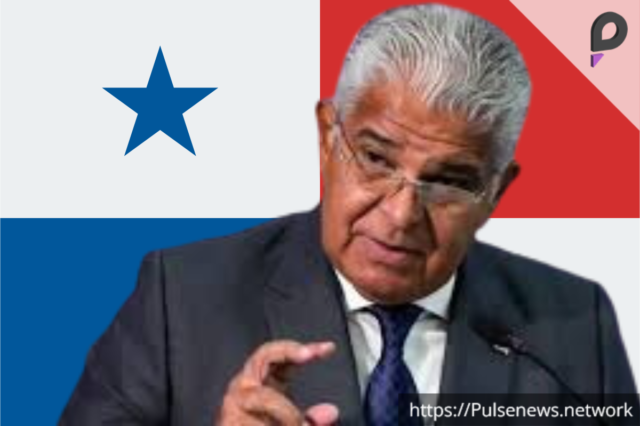Panama City: Panama’s President, José Raúl Mulino, has firmly denied claims by U.S. President-elect Donald Trump that Chinese soldiers are present at the Panama Canal. Mulino labeled the claim as “nonsense,” emphasizing that there is “absolutely no Chinese interference” in the operations of the canal.
“There is not a single Chinese soldier in the canal,” Mulino stated firmly during a press conference in Panama City. He also dismissed Trump’s recent threats to take the canal back under U.S. control, asserting Panama’s sovereignty over the critical shipping route.
Trump’s Controversial Statements
Trump’s remarks, posted on his Truth Social platform, sparked international attention. He accused Panama of overcharging shipping fees and claimed Chinese forces were “illegally” operating the canal. Trump further threatened to demand the return of the canal to the United States if shipping rates were not reduced.
“The canal is Panamanian and belongs to Panamanians,” Mulino responded. “There’s no possibility of opening any kind of conversation around this reality.”
Panama-China Relations
Since cutting diplomatic ties with Taiwan in 2017, Panama has established a solid relationship with China. Mulino described these ties as “respectful and well-managed” and beneficial for both nations. However, he emphasized that Panama remains in full control of the canal, with no involvement from Chinese military forces.
China is a significant user of the canal, second only to the United States, and has made substantial investments in Panama, including the management of ports near the canal’s entrances by Hong Kong-based CK Hutchison Holdings.
Rising Canal Fees and U.S. Concerns
The Panama Canal is a critical global trade route, connecting the Atlantic and Pacific Oceans. Over 14,000 ships transit the 51-mile (82-kilometer) canal annually, carrying goods ranging from cars to natural gas.
Recently, canal transit fees have risen due to a historic drought affecting operations. Trump criticized these increases as “ridiculous and highly unfair,” prompting his threats to reclaim the canal.
Historical Context of the Canal
The Panama Canal, built in the early 20th century, was under U.S. control until 1977, when treaties initiated a gradual transfer of control back to Panama. In 1999, Panama assumed full sovereignty over the canal.
Mulino reiterated that the canal is a symbol of Panamanian pride and sovereignty, rejecting any notions of external control.
Political Implications
Trump also announced his intent to nominate Kevin Marino Cabrera, a Republican from Florida, as U.S. Ambassador to Panama. This move underscores Trump’s focus on Panama during his transition to office.
While Trump’s claims have stirred controversy, Mulino’s firm stance highlights Panama’s unwavering commitment to its independence and the integrity of the canal.
Conclusion
The Panama Canal remains a vital asset for global trade and a point of national pride for Panama. Despite Trump’s provocative statements, President Mulino’s clear rejection of these claims underscores the nation’s sovereignty and its pivotal role in international commerce.











